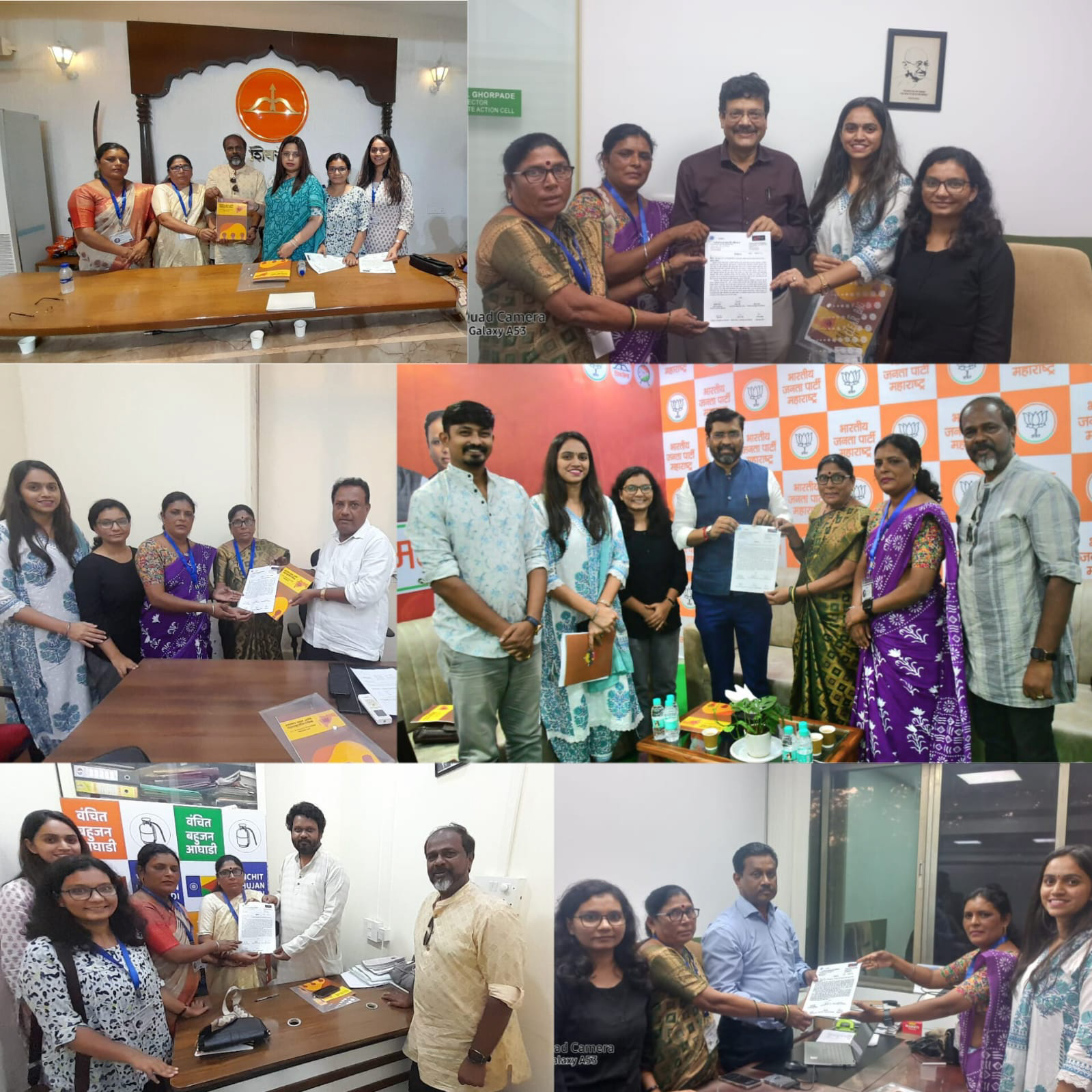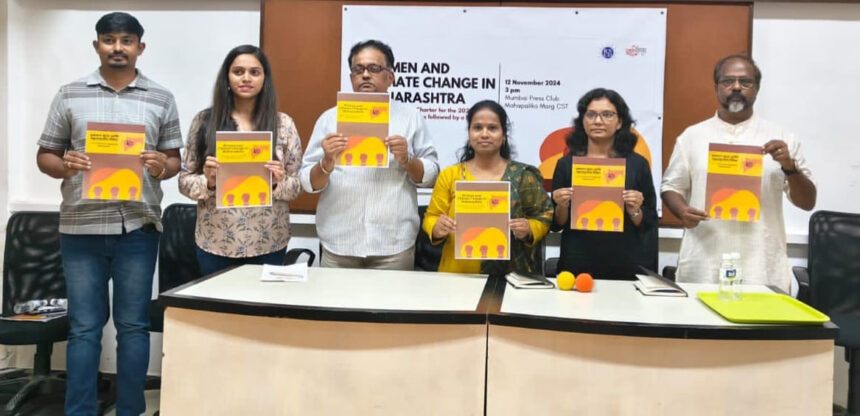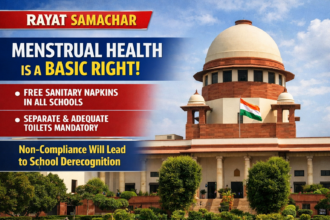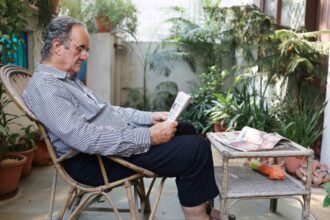Mumbai | November 13 | Correspondent
Amidst the upcoming Maharashtra Assembly Elections 2024, organizations and local Women leaders working on women’s issues and climate change in the state have created a ‘Lokrajya Charter for Women and Climate Change’ for political parties and their candidates.
In collaboration with various local communities and groups across Maharashtra, RSCD and Baimanus Media Research Foundation jointly prepared this charter. Representatives from local communities working on these issues, grassroots activists, women sarpanchs, and members of various social and civic organizations contributed to the development of this charter.
The ‘Lokrajya Charter for Women and Climate Change’ was officially launched at a press conference on November 12 at the Mumbai Press Club. During the conference, speakers called on political parties to address the unique challenges faced by women in Maharashtra’s five main regions—Marathwada, Vidarbha, Konkan, Western Maharashtra, and North Maharashtra—due to climate-related crises, and to develop solutions accordingly.
Speakers highlighted that Maharashtra faces constant threats due to changing climate conditions, especially in the form of severe droughts, floods, and rising temperatures, with women bearing the brunt of these crises. Particularly, women from economically marginalized communities, who shoulder the responsibilities of household management, face heightened risks. The charter outlines seven major demands to ensure gender-focused climate resilience.
Key Demands in the ‘Lokrajya Charter’ :
1. A gender-responsive state climate action plan.
2. Reducing women’s climate vulnerabilities.
3. Creation of climate-resilient housing.
4. Gender and energy transition.
5. Social safety nets for climate stability.
6. Climate planning from the grassroots level.
7. Conservation of biodiversity.
Through this charter, there is a demand for women to be represented in planning at local and state climate boards and decision-making committees. It calls for addressing women’s issues related to food, water, and sanitation in response to climate crises. Additionally, it seeks climate disaster-resilient housing and financial security for women in the unorganized sector. The charter also recommends setting up a ‘Gender and Climate Task Force’ under the Maharashtra State Climate Cell to oversee gender-equal implementation of climate policies.
Dr. Kavita Ware, a member of the charter drafting committee and Sarpanch of Kisal Gram Panchayat, Thane, expressed that policies rarely consider the impact on women. Through this charter and local panchayat-level initiatives, they aim to bring about meaningful change.
Bhima Raskar, Director of RSCD, said that members of the Environmental Governance Campaign met representatives from several political parties in the state, requesting them to incorporate the charter’s demands into their manifestos. Representatives from multiple parties responded positively. Regardless of which party comes to power, addressing women’s climate vulnerabilities is essential, to be tackled through political and social cooperation.
Apsara Aga from Baimanus said that in any climate crisis or disaster, women suffer the most. In her report on the flood situation in Pune, she observed that women in slums lack adequate health and sanitation facilities due to flooding. Therefore, increasing women’s participation in urban and rural climate planning is necessary.
Varsha Kodape from Baimanus, Chandrapur, shared insights on how climate change affects women’s physical and mental health and livelihoods. The study also emphasizes the need for environmentally-friendly projects that don’t harm women’s traditional livelihoods.
About the Organizations Behind the ‘Lokrajya Charter’
For the past two years, Baimanus and RSCD have been training women in Maharashtra on climate leadership and capacity building. Baimanus has prepared several women leaders to report on climate change issues at the local level, while RSCD organized about 250 ‘Climate Village Dialogues’ across 10 districts in the state. Based on these experiences, these organizations developed the charter to address women’s climate issues, hoping to make ‘Women and Climate Change’ a key agenda in the 2024 Assembly Elections.
Please, post your reaction in the comment box after reading the news





